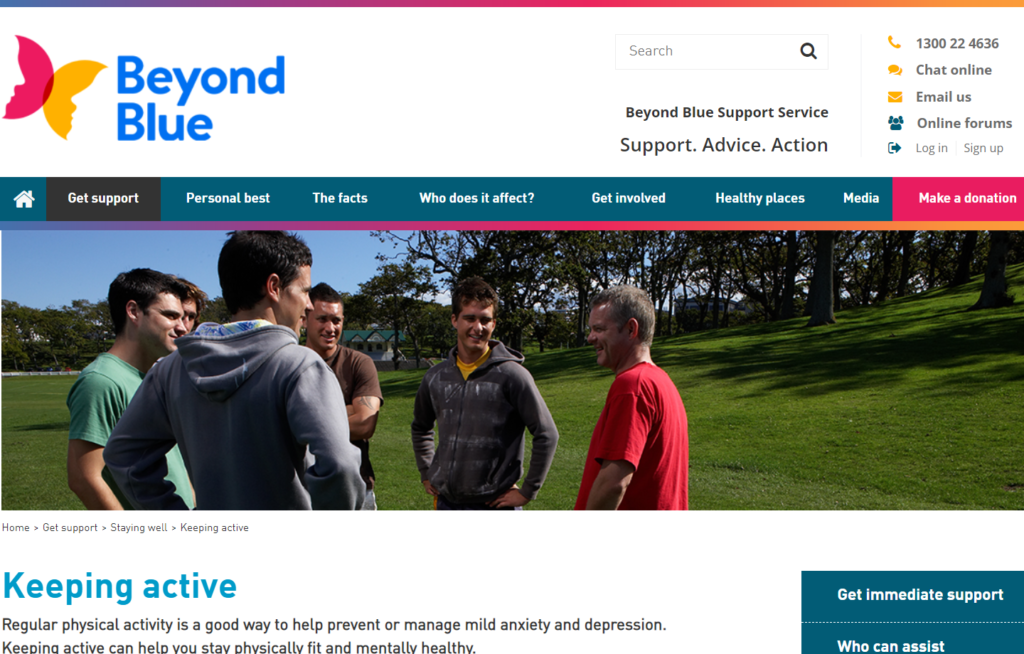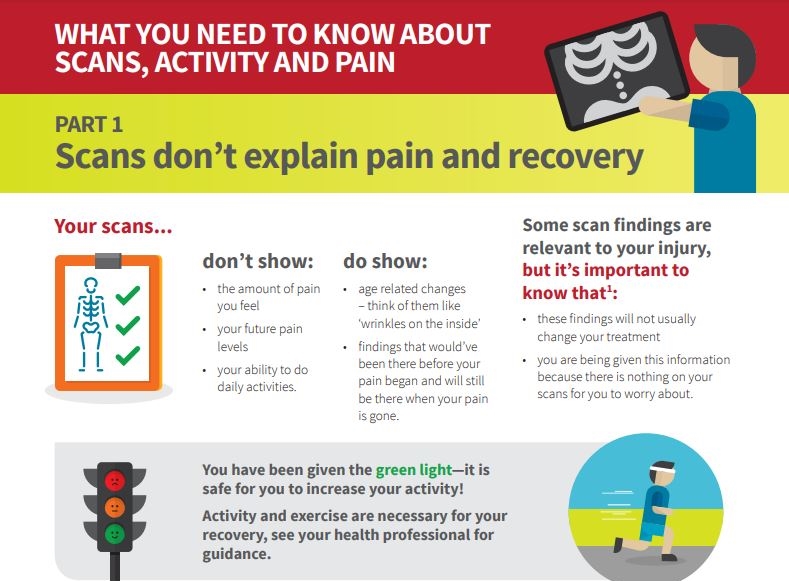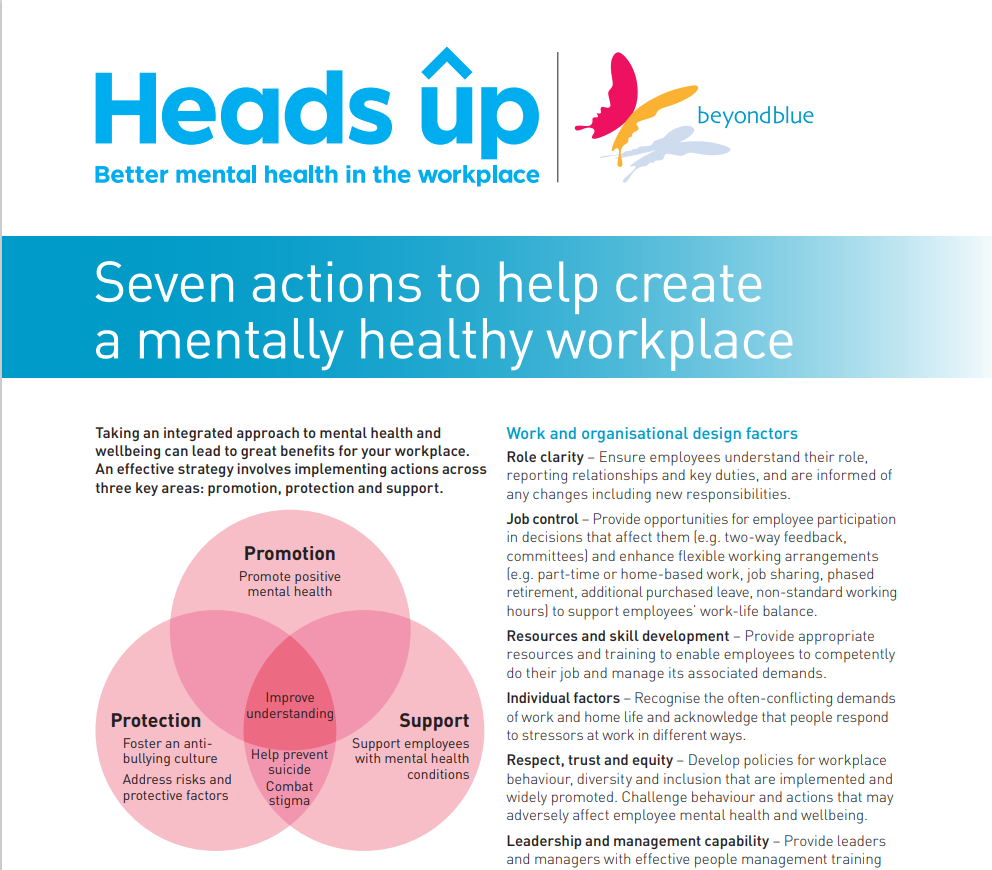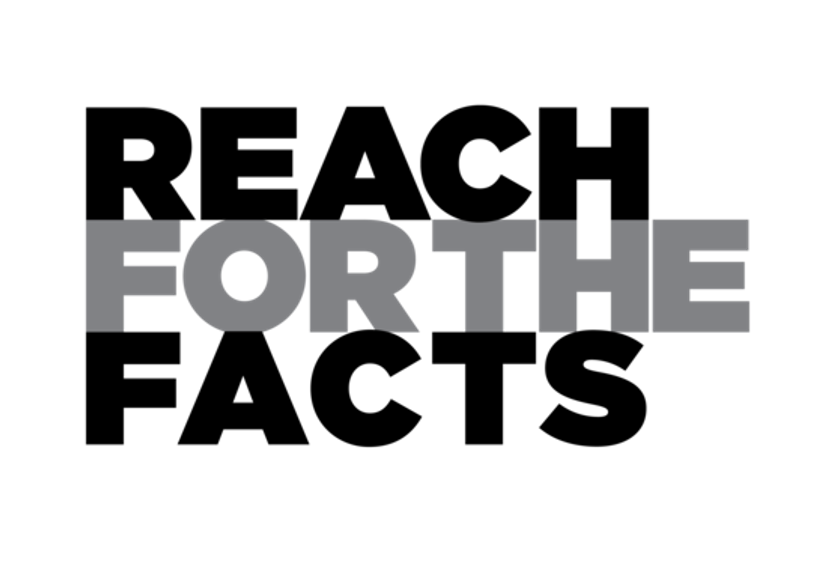
Resources
The power of knowledge cannot be underestimated, but it’s important to get the right information.
These links provide some quality, evidence-based information, that is explained in simple terms to help you better understand your body and health.
If you are having difficulty finding the information that you are looking for, reach out and allow us to assist.
Understanding pain in less than 5 minutes
This video helps to understand what current research is telling us about pain and the difference between acute and persisting (chronic) pain. As we learn more about how our pain can impact and be influenced by our actions, emotions, environment and relationships, we are in a better position to more effectively manage it.
Back Facts – 10 facts about back pain that you may not know
Low back pain (LBP) is the leading cause of disability worldwide, and is often associated with costly, ineffective and sometimes harmful care. Unhelpful beliefs about LBP are associated with greater levels of pain, disability, work absenteeism, medication use and healthcare seeking.
This fact sheet infographic and client video shares 10 common unhelpful beliefs about LBP and outlines how they may influence behavioural and psychological responses to pain.
Keeping active
Keeping active can help you stay physically fit and mentally healthy, with evidence showing positive outcomes including improved mood, sleeping patterns, energy levels and being effective at managing mild anxiety and depression. Even with this knowledge, it can be difficult at times knowing how to get started. This website provides information and tools to assist you in becoming more active.
The brain-changing benefits of exercise
Exercise rehabilitation is often thought about as a way to recover from a physical injury, but there are so many more positive effects from regular exercise and physical activity. In this video, neuroscientist Wendy Suzuki discusses the science of how exercise can boost your mood and memory, improve your mental health and protect your brain against neurodegenerative diseases like Alzheimer’s.
What you need to know about scans, activity and pain
This document has been developed by Return To Work SA (RTWSA) and provides great information and advice about how to return to activity remain active and when dealing with pain and injury.
Mindfulness and how the brain works
Mindfulness is paying attention to the present moment with openness, curiosity and without judgement. There is great research to show the scientific benefits of mindfulness including reducing anxiety, creating a sense of calm and learning to relax and regulate emotions, improving concentration, enjoying better sleep and developing a sense of empathy. This video is an introduction to mindfulness.
Relaxation exercises
Relaxation techniques can help to relax the mind and body and also manage some of the symptoms of anxiety and depression. The Beyond Blue website has some great resources that you might find helpful in learning to relax through breathing exercises, muscle relaxation and visualisation.
How to manage stress and build resilience with mindfulness
We encounter stress every day. Resilience is the ability to cope with unexpected changes and challenges in your life. It’s not always possible to prevent stressful or adverse situations, but you can strengthen your capacity to deal with these challenges. This video provides a simple explanation of how mindfulness can help us to build resilience and be better equipped to effectively manage our stress.
Seven actions to help create a mentally healthy workplace
This 2 page information sheet provides some great information and advice on how to create a mentally healthy workplace. The benefits of investing in health and wellbeing in the workplace are realised more often now, with evidence demonstrating that improving employee wellbeing leads to positive outcomes including increased engagement, productivity and retention, and reduced absenteeism and presenteeism.
Opioids and pain
Prescription opioids (pain relief medication) can be an effective way to manage your pain, but keep in mind that the ultimate goal is usually to reduce your pain and improve your day to day living. Current evidence shows that opioid medications may not be an optimal approach for chronic long term pain. It’s also important to realise that taking opioids is only one way of managing your pain, and that they are unlikely to take away your pain completely. This website contains helpful information regarding medications, pain management strategies and support for individuals and health professionals to understand the impact of opioids.




